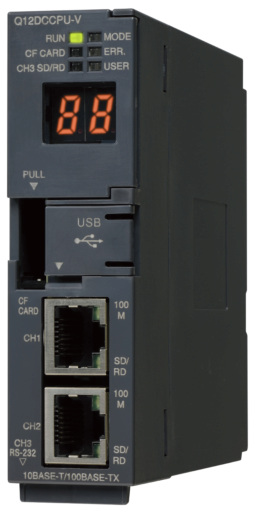1. EXECUTIVE SUMMARY
- CVSS v3 9.0
- ATTENTION: Exploitable remotely
- Vendor: Mitsubishi Electric
- Equipment: MELSEC-Q Series C Controller Module
- Vulnerability: Heap-based Buffer Overflow
2. RISK EVALUATION
Successful exploitation of this vulnerability could cause a denial-of-service condition or allow remote code execution.
3. TECHNICAL DETAILS
3.1 AFFECTED PRODUCTS
The following versions of MELSEC-Q Series C Controller Module using Wind River VxWorks Version 6.4 are affected:
- Module Q12DCCPU-V: First 5 digits of serial number 24031 and prior
3.2 VULNERABILITY OVERVIEW
3.2.1 HEAP-BASED BUFFER OVERFLOW CWE-122
The affected product uses a vulnerable version of Wind River VxWorks that could result in a heap-based buffer overflow in the DHCP client
CVE-2021-29998 has been assigned to this vulnerability. A CVSS v3 base score of 9.0 has been calculated; the CVSS vector string is (AV:N/AC:H/PR:N/UI:N/S:C/C:H/I:H/A:H).
3.3 BACKGROUND
- CRITICAL INFRASTRUCTURE SECTORS: Critical Manufacturing
- COUNTRIES/AREAS DEPLOYED: Worldwide
- COMPANY HEADQUARTERS LOCATION: Japan
3.4 RESEARCHER
Mitsubishi Electric reported this vulnerability to CISA.
4. MITIGATIONS
Mitsubishi Electric recommends the following:
- Update to 24032 (first 5 digits of serial number) or later. Contact a Mitsubishi Electric representative for more information.
- Disable the DHCP function in “Security Settings” of the C language controller settings/monitor tool if the product is in “Extended mode” and the DHCP client function is not required.
- Update DHCP server to the latest version.
- Use a firewall or virtual private network (VPN), etc. to prevent unauthorized access when Internet access is required.
- Use within a trusted LAN that is properly divided by routers and firewalls.
For more information see Mitsubishi Electric’s advisory 2022-001
CISA reminds organizations to perform proper impact analysis and risk assessment prior to deploying defensive measures.
CISA also provides a section for control systems security recommended practices on the ICS webpage on cisa.gov. Several recommended practices are available for reading and download, including Improving Industrial Control Systems Cybersecurity with Defense-in-Depth Strategies.
Additional mitigation guidance and recommended practices are publicly available on the ICS webpage on cisa.gov in the Technical Information Paper, ICS-TIP-12-146-01B–Targeted Cyber Intrusion Detection and Mitigation Strategies.
Organizations observing any suspected malicious activity should follow their established internal procedures and report their findings to CISA for tracking and correlation against other incidents.
No known public exploits specifically target this vulnerability. This vulnerability has a high attack complexity.
Source:


Stay connected